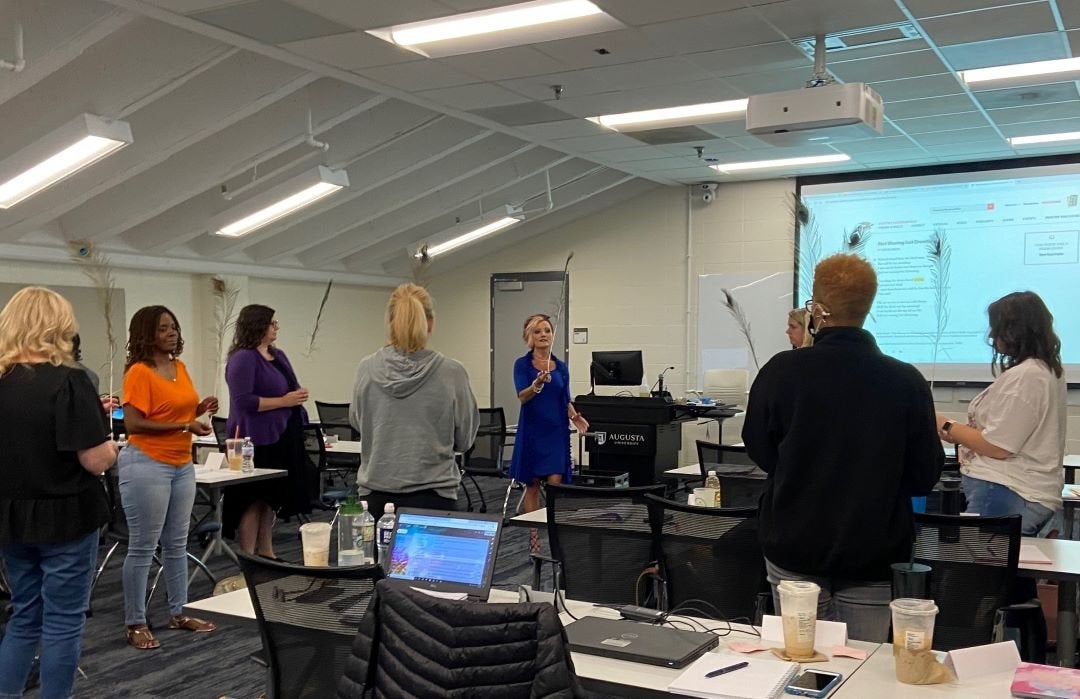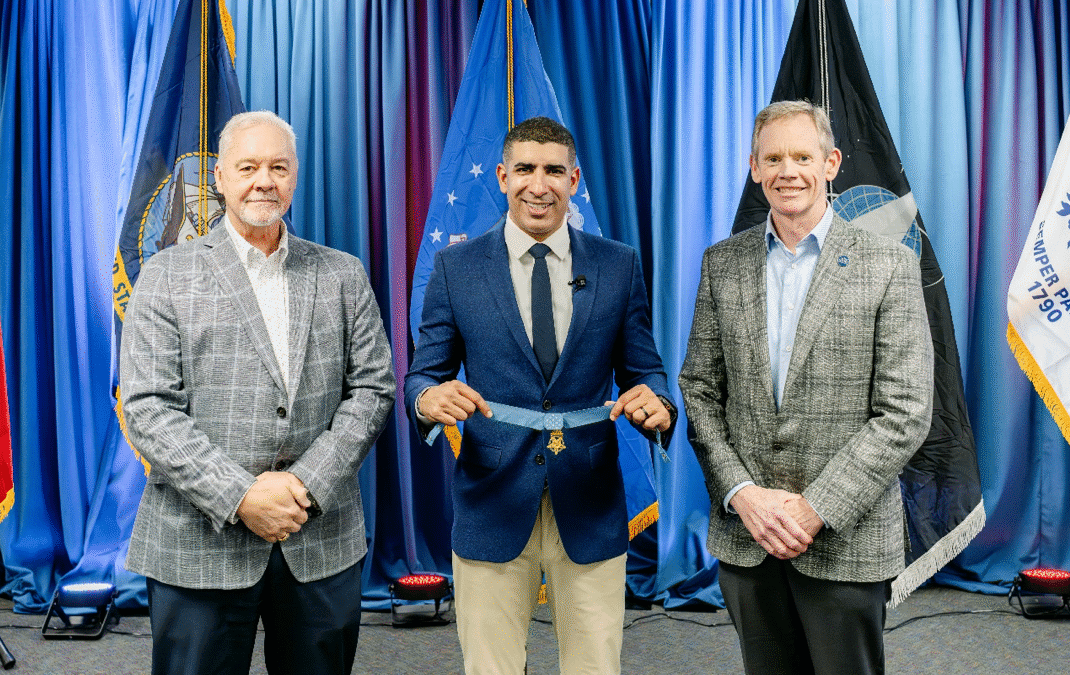Dr. Rebecca Harper handed a peacock feather to each of the teachers involved in the Augusta University Writing Project Summer Institute.
She then rattled off a list of requirements. They had to balance the feather on one fingertip, walk around, meet five other teachers they hadn’t met yet and ask them where and what they taught.
After several minutes, she had them stop and changed the exercise, giving them a much simpler task. They could balance the feather in the palm of their hand while focusing their attention on its eye. They didn’t have to move or talk to anyone.
MORE: AU Professor Organizes Online Book Club for Teachers
She then asked which was easier to do; to which all the teachers replied that the second task that was easier.
“How much experience have you had balancing a peacock feather?” said Harper, associate professor of language and literacy with the department of Advanced Studies and Innovation.
Harper compared the concept of balancing a peacock feather while walking and talking to writing. Some students come into a class with no mastery of the basics, and when they receive a paper covered in red ink, they become defeated and don’t want to try to correct their mistakes or learn from them.
“We have been asking them for the most advanced version,” she said.
[adrotate banner=”54″]
Had Harper spent several weeks working up to the peacock feather drill, they would’ve been better prepared and could’ve likely mastered it, she said, telling the teachers to focus on one writing skill. Then as individual skills are mastered, teachers should add onto them.
The AU Writing Project Summer Institute is in its fourth year. It’s an immersive two-week experience during which teachers learn concepts not only for their students but to help them in their individual writing. This year’s institute began June 8.
Laura Carr, who teaches at the Academy of Richmond County, was part of the institute last year, but it was virtual instead of in-person.
“It’s so much easier to collaborate in-person,” she said.
Some of the individual projects within the class require teamwork among the teachers.
MORE: Local Authors Serve Up Summer Reads
She and De Williams, who teaches at Spirit Creek Middle School, worked on a text-mapping task, designed to help students read and comprehend non-fiction in their other textbooks.
“This is the second day, and I feel like I have at least 10 different standards I can use with my students,” Williams said.
Both women said they were looking forward to next school year and meeting with their students in person and taking back what they’d learned.
Charmain Z. Brackett is the Features Editor for The Augusta Press. Reach her at charmain@theaugustapress.com.
[adrotate banner=”37″]











